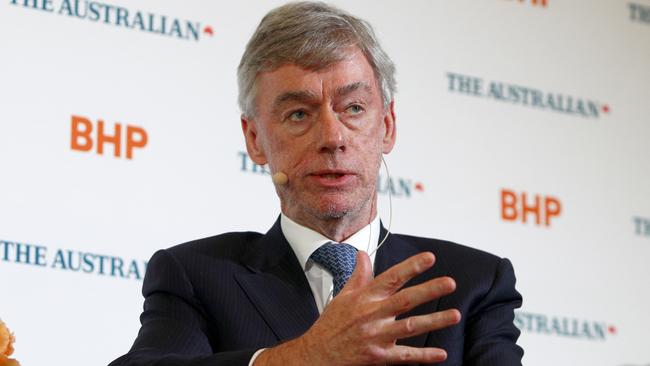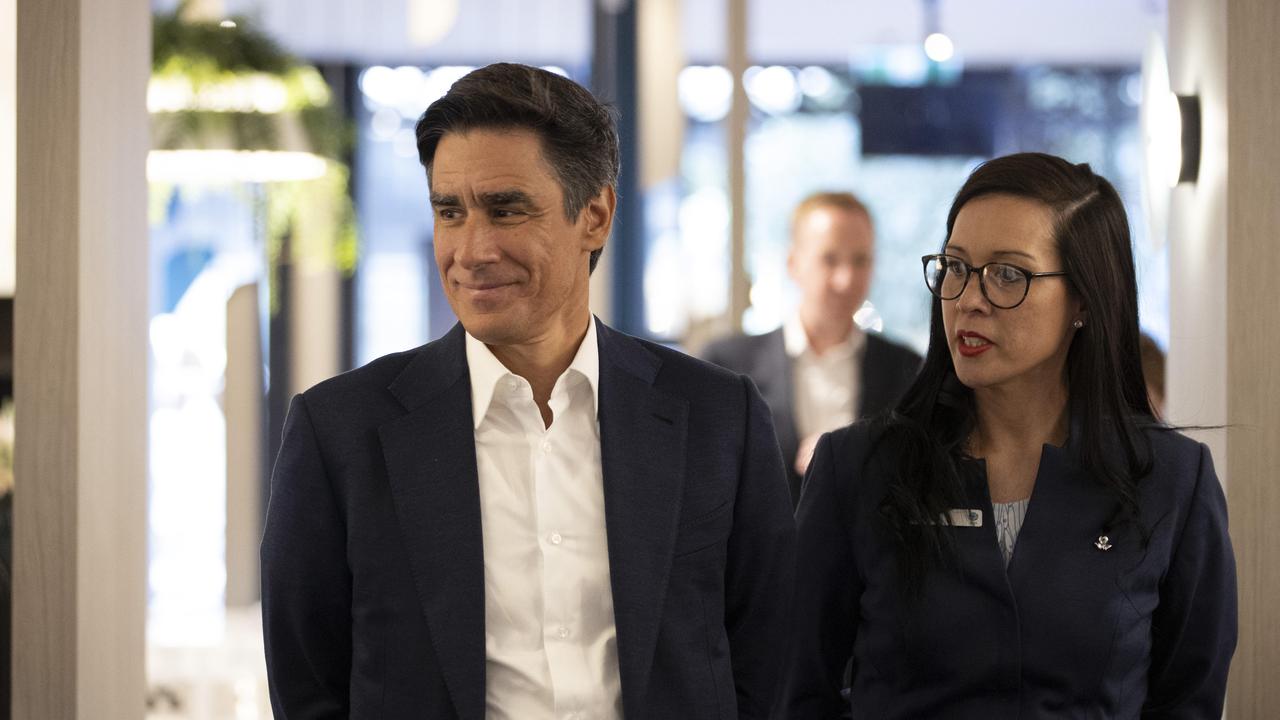Calls for banking royal commission ‘to drive up interest rates’
Westpac chair Lindsay Maxsted says persistent calls for a royal commission could lead to higher funding costs and interest rates.

Westpac chairman Lindsay Maxsted has warned that persistent calls for a royal commission could lead to higher funding costs for the banking system, which would ultimately be felt by borrowers in the form of higher interest rates.
At the same time, the political point-scoring could ultimately have severe consequences for the economy in the form of a funding squeeze.
The comments come as Scott Morrison late yesterday met with the chairmen of three of the big four banks as the Turnbull government continued to resist calls for a banking royal commission. National Australia Bank chairman Ken Henry, Westpac’s Mr Maxsted and ANZ chairman David Gonski held separate meetings with the Treasurer in Sydney.
Speaking earlier yesterday at The Australian’s Competitive Advantage Forum, Mr Maxsted and NAB’s Dr Henry, a former Treasury secretary, said the increasing chances of a royal commission had not yet turned global investors away in enough numbers to affect funding markets, but the calls were starting to make global investors worry about the system’s health.
“We are getting increasing numbers of people saying: ‘What the hell is going on down there?’,” Dr Henry said.
Mr Maxsted labelled the intense political bickering over the banking sector as “very dangerous stuff”.
He said the world believed Australia had one of the safest, most secure and stable banking systems in the world. But he said the bank bashing had investors questioning whether “there’s some problem there” and that calls for a royal commission were hints that there was more that investors did not “know about” the banks.
The comments came as Nationals senator Barry O’Sullivan yesterday circulated his draft private member’s bill to establish a wide-ranging inquiry into the banking sector, vowing to move it in the Senate next week. The banks have said any such move could see international investors turn their backs on the sector.
Australian banks rely on international wholesale funding markets for about a third of their funding, with local depositors making up the balance. Last financial year the big four banks raised almost $150 billion in wholesale funds.
Wholesale funding markets are highly volatile during times of economic or political crisis, and can have a heavy impact on the cost of doing business for a bank. During the global financial crisis when international funding markets froze, the federal government made the unprecedented move of guaranteeing offshore wholesale borrowings.
Finance Minister Mathias Cormann, also speaking at yesterday’s forum, said while an inquiry might be “an attractive political exercise for some ... it wouldn’t actually lead to any public interest benefit”.
“It would be another long, costly process that wouldn’t provide us with any new information. A more important thing to do right now, we believe, is to deal with the issues that we all know have emerged in recent times — to address them,” Senator Cormann said. “The most important thing about banking and Australia and the role of banks in the competitiveness in Australia is having a strong system that attracts those deposits.”
Asked if the banks were feeling the cost of higher funding rates, Mr Maxsted said the impact of the pressure for a royal commission had “not yet” filtered through to wholesale pricing. “Part of this is because of just the amount of liquidity there is in the world and the choices debt investors have,” Mr Maxsted said.
“We’re still regarded, thankfully, in Australia and the Australian banking system as a good destination for those funds. If we continue to go down certain paths, then I fear that might happen, but not to date.”
Dr Henry raised the spectre of the 2008 GFC to remind people of the importance of having a strong banking sector. As federal Treasury secretary, he was called to share a plane ride with then prime minister Kevin Rudd on February 29, 2008. Mr Rudd was concerned about the potential impact of the crisis on the Australian economy.
Dr Henry said he told Mr Rudd at the time that “the worst thing that could happen is if the rest of the world stops lending to Australian banks, who could therefore not continue to lend to the Australian economy”.
“If the Australian banks do not play their role, and the Australian economy doesn’t work, the social consequences would be truly catastrophic,” he said.
Commonwealth Bank chief executive Ian Narev said he met with investors in Britain and the US over the past two months, following the bank’s recent $9.9bn full-year profit result.
“Every single meeting I was asked ‘why do we think you’ve got one of the strongest banking systems in the world, but it doesn’t look like the political system shares that view’,” Mr Narev said.
Australian Bankers Association chief executive Anna Bligh said global investors raising concerns about the political environment was a new phenomenon. “Every CEO of major and non-major banks that I’ve spoken to about their investor roadshows, said they were previously — as recently as 18 months ago — not being asked questions like that about Australia, but now they are,” Ms Bligh said.



To join the conversation, please log in. Don't have an account? Register
Join the conversation, you are commenting as Logout